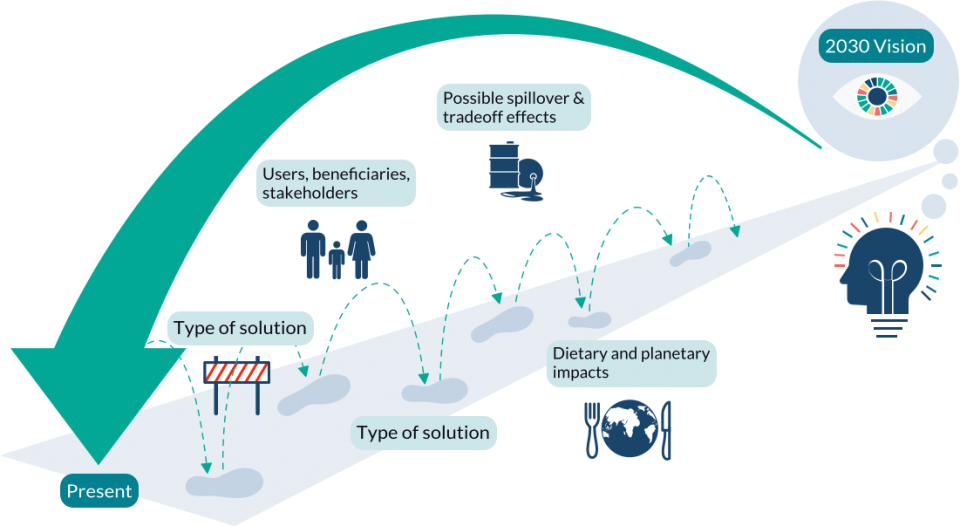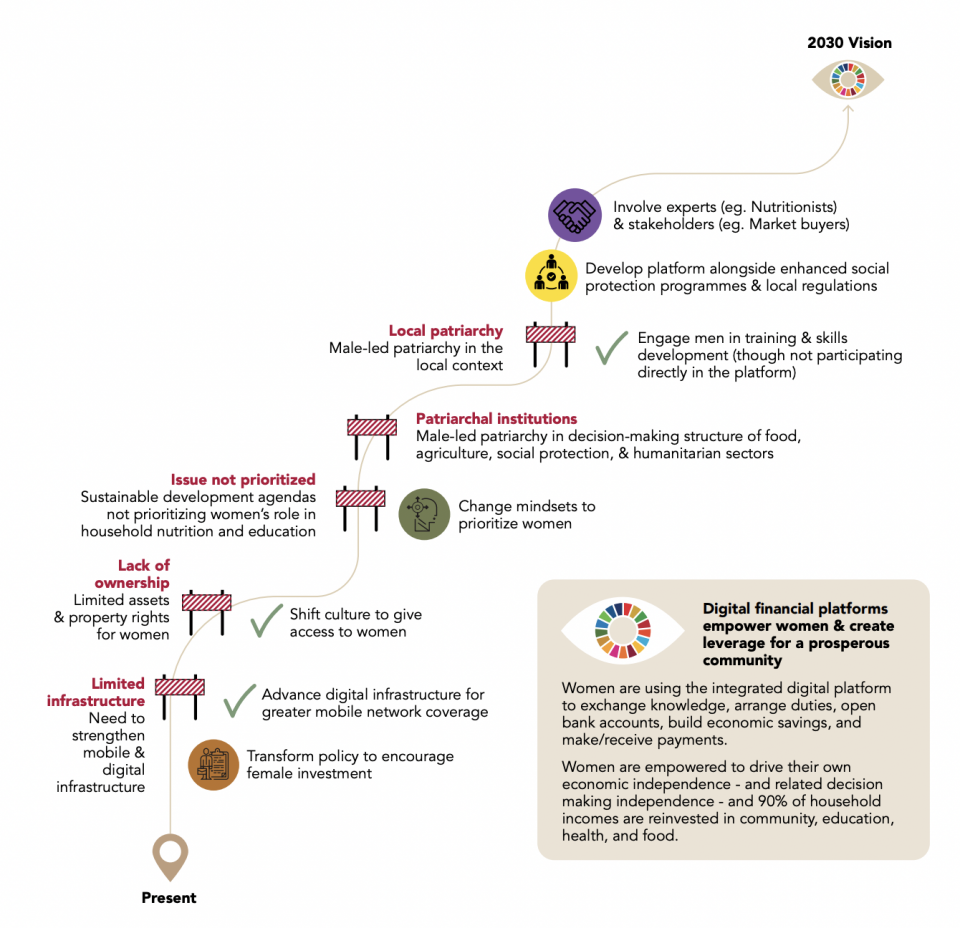Backcasting tool

The backcasting process helps to define and develop a clear future vision of a food system solution being used in a specific place and context to solve dietary and planetary health problems in more equitable ways. Working backwards from that future vision (2030 - in alignment with the UN Sustainable Development Goals), this process can help to identify the necessary steps going forward from today to turn this idea into a reality.
Going through this kind of exercise as an individual or with a team can be a useful way to begin to better understand the what, when, and how of moving a solution (or set of solutions) towards uptake and eventually major impact for a desired outcome.
This exercise is meant to help stimulate multidisciplinary and multidimensional thinking around taking innovative solutions towards impact.
Backcasting can help to identify and plan for possible barriers along the way, as well as help to identify other solutions and key essential elements that will help to accelerate or “boost” the positive impact for both human and environmental health.
The end result of the backcasting process is a clearly defined “pathway-to-impact” map that outlines the what, when and how of moving an idea towards a desired impact, and also who to work with along the way.

Title
INTERACTIVE MAP BUILDER: Adjust your pathway map as-needed along the way
Title
GALLERY: Explore pathway-to-impact maps submitted to the portal
Title
CASE STUDY: Food SystemsThinking for Informal Fresh Food Market Rehabilitation in Tanzania